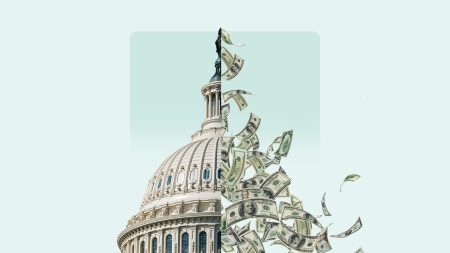Key takeaways
-
You can defer Chapter 13 bankruptcy payments if you encounter unexpected financial hardships.
- Other options for adjusting Chapter 13 bankruptcy payments include asking for a hardship discharge, changing to Chapter 7 bankruptcy or dismissing and refiling your case.
- To be sure you’re taking appropriate action for your specific case, consult a reputable bankruptcy attorney or trustee before attempting to modify your repayment plan.
Chapter 13 bankruptcy, also known as reorganization bankruptcy or a wage earner’s plan, is meant to provide debt relief without allowing creditors to seize your assets. Rather than selling some of your assets to repay debts, Chapter 13 restructures your debts into fewer payments with more manageable amounts.
In an ideal scenario, you’ll make your payments as scheduled without a problem. But what happens when you can’t make those payments as scheduled? How serious are the penalties for missing a payment? Can you defer Chapter 13 bankruptcy payments by a few months to give yourself some time to come up with the money? If you’re struggling to make your payments, you should get to know the answers to those questions.
Missed payments under Chapter 13
Missing any debt payment comes with severe consequences. You’ll likely incur late fees, and your credit score will take a hit. Your interest rate on that debt may even increase. Missing a Chapter 13 bankruptcy payment is even more serious because those payments keep your creditors at bay.
If you miss Chapter 13 payments and don’t take immediate action to address the issue with the bankruptcy trustee assigned to your case, your case could be dismissed. This means you would lose the protection provided by the bankruptcy filing. Creditors could then resume collection activities, including foreclosure, repossession or lawsuits.
However, if you communicate immediately with your trustee, you may be able to arrange deferment for temporary relief.
How deferment works under Chapter 13
Deferment is when payments are temporarily suspended for a short period (perhaps a month or two). Deferring Chapter 13 bankruptcy payments may be possible if you experience a sudden, unexpected financial challenge from which you can recover quickly.
Imagine, for example, losing a week of work because your employer was forced to shut down operations without warning (perhaps due to flooding, fire or storm damage). This lost income creates a short-term financial problem that could cause you to be late on your Chapter 13 payment. Maybe your employer is promising overtime when operations resume, so you know you’ll be able to catch up soon.
In this case, you could contact your trustee to explain the situation and request a deferment. The trustee may grant the deferment under strict terms. For example, they might allow you to defer your next payment if you make two payments the following month.
Alternatives to deferment when you can’t make your bankruptcy payments
What if your financial situation permanently changes and you’re not able to make your bankruptcy payments? Maybe you were laid off and don’t know how long it will take to find a new job. Or perhaps you find a new job immediately, but it pays less, leaving you without enough money to cover your payments.
In this case, a deferment is not sufficient. Even if you have a solid lead on a new employment opportunity that pays more money, the bankruptcy trustee may not be able to approve a deferment because they don’t have enough assurance that you’ll catch up to your agreed-upon payment schedule.
In this case, it’s best to look at longer-term solutions.
Request a modification
A modification is a formal change to your bankruptcy payment plan. This can potentially lower your payments permanently.
You (or your attorney) need to file a motion with the bankruptcy court to request a modification. A judge will hear the motion and make a ruling.
Modifications can’t always be granted. Judges can only reduce payments on nonpriority, unsecured debt, such as credit card debt, personal loans and medical bills. If your only debts are priority secured debts that cannot be discharged, there may not be any wiggle room for the judge to allow a modification.
Additionally, Chapter 13 repayment plans can’t go beyond 60 months. If modifying the payments would push the balances past the 60-month mark, the modification may not be possible.
Before requesting a modification, review your current financial situation carefully. If the court finds that your expenses have decreased or your income has increased, it could raise your payments instead of lowering them.
Ask for a hardship discharge
A hardship discharge relieves you from the obligation of completing your Chapter 13 payment plan. However, there are strict requirements and limits to the debts that can be discharged. In general, a hardship discharge is only available if the following criteria are met:
- The failure to complete the payment plan as expected is due to circumstances beyond your control.
- Creditors have received at least as much repayment as they would have under a Chapter 7 liquidation.
- Modification is not possible.
A hardship discharge is often used for borrowers who are injured or too sick to hold a job that pays well enough to cover planned payments. However, a hardship discharge does not apply to any non-dischargeable debts, such as tax debt or child support.
If you cannot keep up with your Chapter 13 payments, ask your trustee if you might qualify for a hardship discharge.
Switch to Chapter 7
If you cannot modify your monthly payments and don’t qualify for a hardship discharge, you might consider converting your Chapter 13 bankruptcy to a Chapter 7 bankruptcy.
With a Chapter 7 bankruptcy, also known as liquidation bankruptcy, your nonexempt assets are sold to repay creditors, and the remaining unsecured debt is discharged. This typically means losing valuable property and belongings, such as vacation properties, collections and automobiles, so it is not a decision to take lightly. However, it could be the only way to wipe out your debt and get a fresh financial start.
To convert, you will have to pass a means test to prove that your income is low enough to qualify. Discuss this option with your trustee or a bankruptcy attorney before filing a motion to convert with the court.
Accept dismissal and refile your case
If none of the other alternatives to deferment works for you, you could allow the court to dismiss your case so you can start over with a new filing. This is a last-resort measure. When your case is dismissed, creditors can resume collection efforts, including repossession and foreclosure. So you could lose possession of your assets.
The upside to accepting dismissal and refiling is that you can restart the 60-month repayment plan schedule. This gives you more months to spread out your debt payments, resulting in lower monthly payments.
Depending on your current financial position — including income, expenses, debts and assets — you might not qualify to refile for a new Chapter 13 bankruptcy case immediately. This could leave you vulnerable to creditors until you qualify to refile.
Consult a bankruptcy attorney before strategically allowing a dismissal to be able to refile.
The bottom line
Keeping up with your bankruptcy payments is crucial to maintaining your Chapter 13 protections against creditors. If you can’t make your payments on schedule, immediately speak with your bankruptcy attorney or court-appointed trustee to explain your situation and find a solution.
Deferring your Chapter 13 bankruptcy payments can help you recover after a short-term financial setback like an unexpected expense or a temporary decrease in income.
If your finances change in a way that doesn’t allow for such a quick recovery, you may need to change the terms of your bankruptcy repayment plan. To find the best path forward, discuss your unique circumstances with a reputable bankruptcy attorney.
Frequently asked questions
Read the full article here










